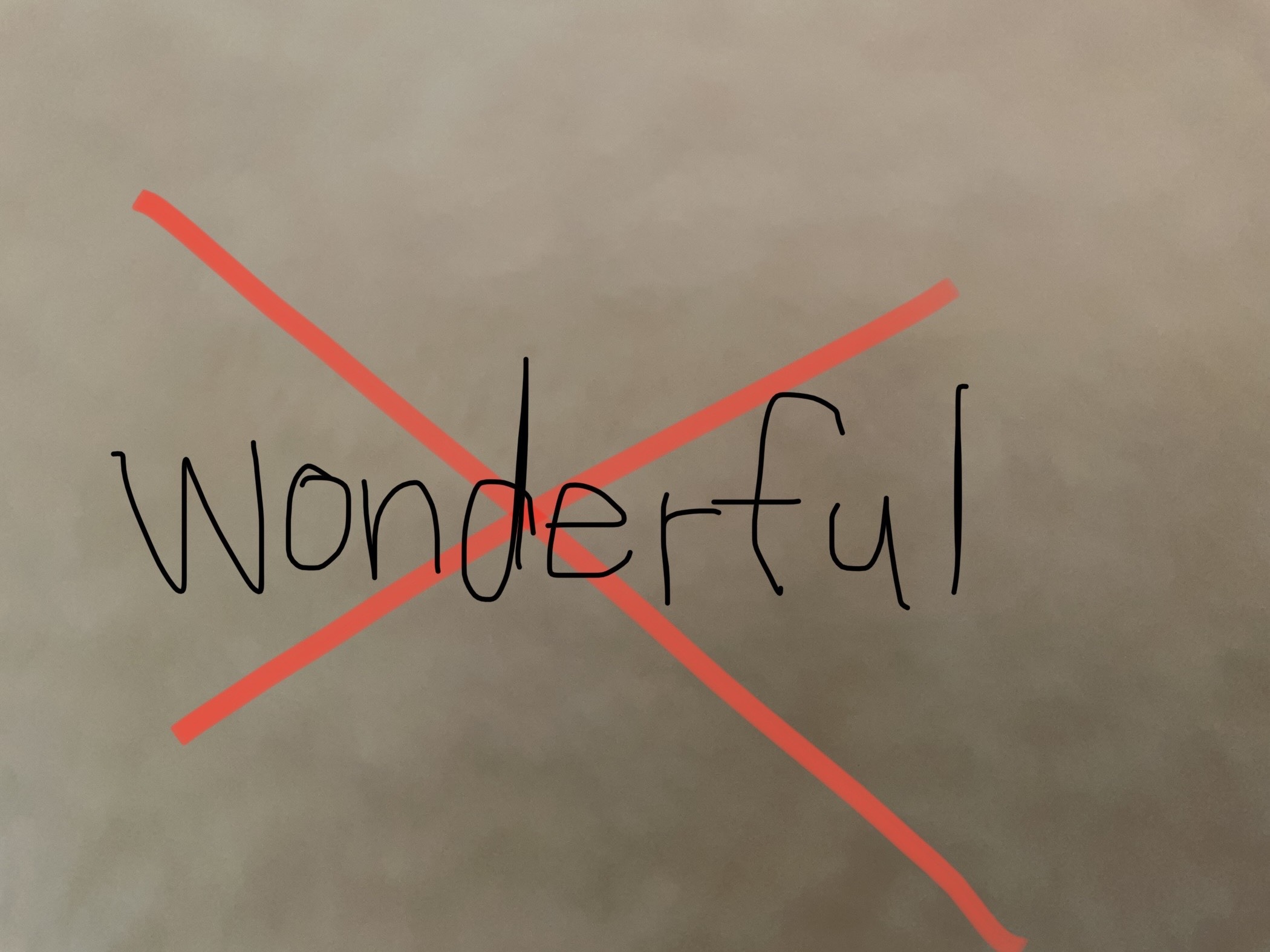One thing about the English language is there are a lot of adjectives. Another thing is that many of these adjectives are useless and annoying, especially when used carelessly, and especially when used carelessly in writing.
But there is one adjective that is worse than all the others. This adjective is either dull or dishonest. Not only is it not descriptive or evocative or illuminating in any way, it’s come to represent nearly the opposite of what it’s supposed to mean. It’s stuffy. It’s stupid. It’s cutesy and affected. It’s a nothing word, useless verbal filler that doesn’t even have the redeeming quality of being a little bit fun. This word is trash: Wonderful.
“Wonderful” is what you say when you recognize that “fine” is too lifeless, but are too lazy or boring to come up with anything else.
“Wonderful” is a book you lied about reading.
“Wonderful” is how you describe a wedding, the whole of which you spent bickering with your wife.
“That’s wonderful,” you say to the person at dinner whose monologue you stopped paying attention to two minutes ago.
“Wonderful” is how you describe a blind date to the person responsible for setting it up.
“Wonderful” is a romantic gesture from someone you only see as a friend.
“Wonderful” is what you say about your terrible former boss in a job interview.
“Wonderful” is how someone who hates you describes your party.
“Mmm wonderful,” you say to someone who insists you try their home-brewed IPA.
Describing something as wonderful ends a conversation. It signals that something is either too dull to merit a real descriptor, or that something is being hidden. It’s avoidant, almost contemptuous. “Wonderful?” I find myself thinking. “Wonderful how?” But “wonderful” invites no questions. It’s a plastered-on smile. “Wonderful” is for acquaintances, for those you don’t want to know better, for people you can’t be bothered to entertain or be honest with.
Somewhere along the way, wonderful meant what it was supposed to—inspiring delight, pleasure, or admiration; extremely good; marvelous—but it no longer does. Proceed accordingly.






